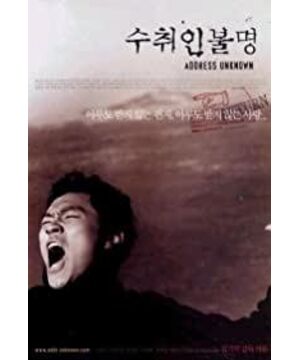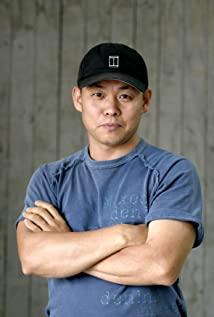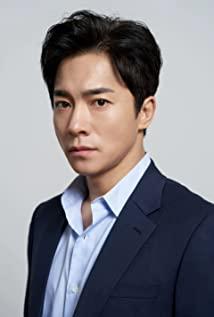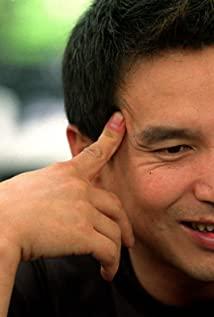I haven't seen many Korean movies because I don't like Korean personalities: love and hatred are intense, impulsive, sudden rage, contempt for women, typical Altai national personality. Korean movies are also particularly fond of showing revenge themes.
Recently, I became a fan of Korean actor Ha Jung Woo (also known as Ha Jung Woo), and I watched several films in which he appeared, such as "The Yellow Sea" and "Breathe". "Yellow Sea" shows the experience of a Chinese Korean border citizen: Jiu Nan is a taxi driver, with a bad temper and a good gamble. He borrowed a loan shark to send his wife to South Korea to work. Unexpectedly, his wife suddenly disappeared. Being impoverished and repeatedly forced to pay debts, in desperation, Hisao accepted a deal and smuggled to South Korea to kill a person. Of course, he also hoped to take this opportunity to find his missing wife.
Xiaohe's performance is always so real: when Hisao was chased by black and white, he was shot, and hid in the jungle and cried, it was moving, much more real than Rocky who did not change his color and sewed wounds for himself in Western movies. Aren't men vulnerable? In that kind of life-and-death hardship, wouldn't you cry twice in a place no one could see?
"Breathe" is the work of Kim Ki-duk, a well-known Korean director. I have seen his "Shoreline" and "Drifting Room" before. So far, all of his works should probably be classified as art films. The viewing experience is not very strong, and the audience is not large, so the box office performance is not good, but it has won many awards in major film festivals. Because his films are profound and distinctive, they have deep sympathy for the plight of people's survival. His films are uniform in style: dialogue is minimal, and the protagonist sometimes doesn't have a single line, as in "Empty Room" and "Breathe." The protagonist of "Breathe" found the death row inmate of Taiwanese actor Zhang Zhen - no need to speak, all rely on his eyes to express, there is a murderous look in Zhang Zhen's eyes.
I think Kim Ki-duk's film has a strong religious ideology. After reading his background information, sure enough, he once tried to become a clergyman, but failed. I have made movies involving religious themes such as "Saint" and "Samaria Girl" (haven't watched these two yet).
No matter what kind of story, Kim Ki-duk's films are always filled with deep sadness, and the picture is almost always gray. The theme is all about "the pain of life, the tiredness of shape".
"Breathe" shows people being crushed by the environment and struggling in a desperate situation. "Empty Room" expresses a strong desire to get rid of "form tiredness". The protagonist is played by a handsome boy who looks like a girl. I have a strong feeling that he was a bhikshuni in his previous life. In the movie, he did a standard folded palm when practicing the Invisibility Dafa.
"Unknown recipient" was just watched today. It tells about the people and things that happened in a small village near the U.S. Air Force base in South Korea. It is a standard realistic theme. There are no ghosts or criminals in the usual sense, but some people say it "Scarier than all horror movies".
Kim Ki-duk's narrative technique is unique. The film begins with the following scenes: a high school girl who came back from school kicked away a teddy bear in her mother's hand, her brother asked her mother for money to watch a movie, but was hit in the head by her mother ; A woman took a picture of a young man, but the young man chased and beat her angrily; a handsome boy gave a portrait to a female high school student, but she was slapped in the face, and the portrait was torn by her.
After reading such a beginning, I can only sigh: It's really Asura's world, how can everyone have such a bad temper.
The plot unfolded slowly, and the audience gradually understood the reason behind the emotional reincarnation: Enluo was accidentally injured in one eye by her brother when she was a child, so she always had short hair and half-covered her face, which is why she kicked the teddy bear in her mother's hand—— At the time, the mother was sewing another eye to the teddy bear. It was at this moment that the winless and always hopeless son came to ask for money again, so the mother was angry with him - it was this idiot who made his sister blind in one eye. That's why the girl tore up the portrait that Eun Wu, who had a crush on her, gave her: the person in the picture has two eyes, but she is not her.
The woman who took a photo of her son Shang Wu but was beaten is a half-mad man. The reason for her frustration is that she could not contact Shang Wu's biological father, a black American soldier who used to be stationed in Korea. Shang Wu was discriminated against and bullied because of his background, but his mother refused to give up her dream of going to the United States one day: when she took a photo of Shang Wu, she wanted to put the photo in a letter and send it to the United States, but the letter was always returned. This kind of situation keeps repeating, can Shang Wu not be crazy?
This pair of mother and son is very strange. The mother is crazy and young, and the son looks almost an adult man. The mother and son live in an abandoned van with the words "United States Air Force" printed on the front. The scene of a son beating his mother is like a husband beating his wife. The mother's so-called "boyfriend" (also a mixed-race descendant of the U.S. military stationed in South Korea) made a business of killing dogs, and Shang Wu was his assistant. Every time Shang Wu beat his mother, he beat Shang Wu, and sometimes for other reasons: Shang Wu participated in the killing of the dog but refused to do it himself. Killing dogs with wooden sticks (the beginning of the film specifically states that no animals were harmed during the filming process, and by the way: Feng Xiaoning, a third-rate director in China who specializes in red-themed movies, pushed a white horse in pursuit of the so-called real shocking scene. down the cliff, sacrificing such a beautiful creature for his trash).
I remember a mage said, "Dogs are Asuras in the animal world." And Kim Ki-deok's film seems to be showing the world of Asura: people and dogs, people and people: the strong subdue the weak, crush each other: Shangwu beats his mother, his mother's boyfriend beats him, and his mother beats him because of his son Beaten up and beat her boyfriend. En Wu, who has a crush on Enluo, is always bullied by two gangsters, who fight each other because of the uneven distribution of the spoils, and get beaten by the police for fighting in the street... The atmosphere of violence and hatred circulates in this seemingly peaceful small village. flow.
The relationship between the staring girl Enlo and the US soldiers should be a metaphor for the relationship between South Korea and the United States. At first I thought the American guy was pretty good. He seemed to really care about the girl's eyes and encouraged her to go to the US military hospital for treatment. Of course, he didn't hide his purpose: he wanted Enlo to be his girlfriend. The girl's eyes were really healed, and there was a bright color in the film. Things were too good to be believed. Such bright colors appear in Kim Ki-duk's film very unnaturally, like a rainbow on a soap bubble. The soap bubbles soon burst: the girl had to accept his mercy because she had received the soldier's favor: she was forced to take medicine with him, went to the dance hall, and was beaten for disobedience. When the American soldier was deported back to his country for repeated misconduct, he was even more mad to engrave his name on the girl. Unable to bear, Enluo picked up the knife, and instead of stabbing the American soldier, he stabbed his newly cured eye...
Enluo should not repeat the fate of Shangwu's mother. While Shang Wu killed the dog killer by killing the dog, the other end of the rope was led by a group of dogs as his assistant: a typical example of karma. He finally showed a little love to his mother: gently helping her bathe, but also to use a knife to cut off the mark left by his biological father on her body, and finally, with his life, he drew a V in the paddy field and ended He could not bear the weight of life.
View more about Suchwiin bulmyeong reviews










